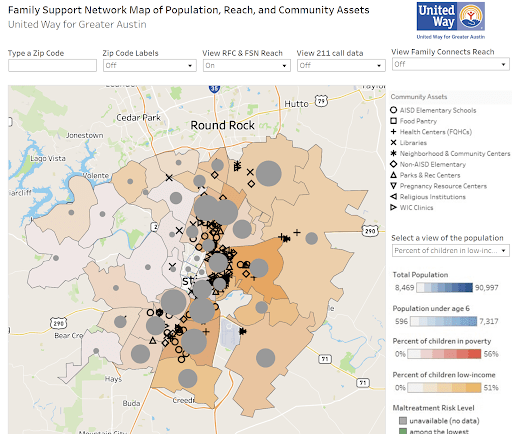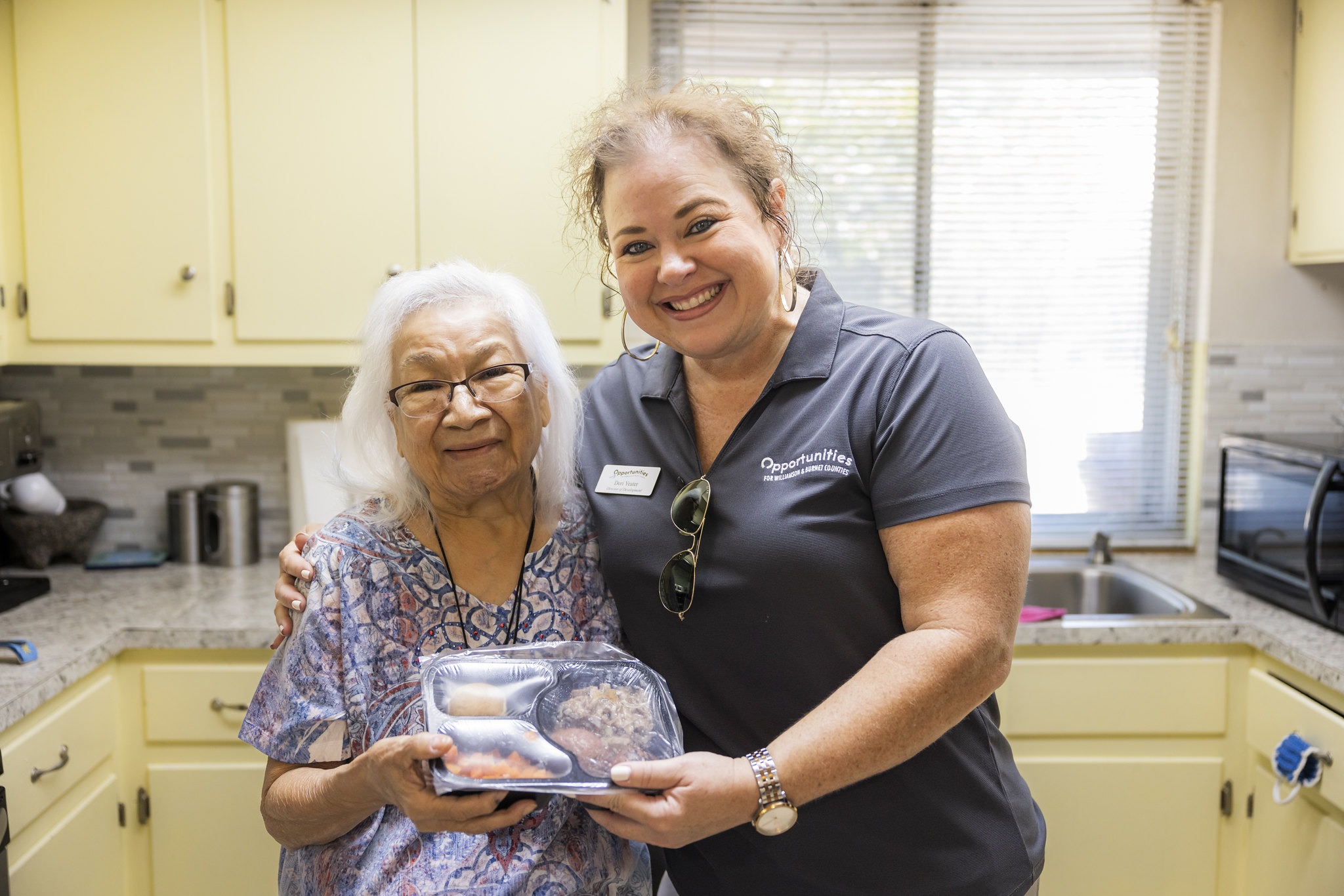United Way for Greater Austin advances our mission — bringing our community together to break economic barriers and build opportunity for all — using four strategies. One of those is data.
United Way envisions a Central Texas where everyone has the opportunity to thrive. And 2024 marks an important milestone for us: 100 years serving the community! As we reflect on a century of change and a legacy of impact, our new strategic plan – adopted by United Way for Greater Austin’s Board in September 2023 – harnesses the power of a collaborative community for lasting change for our next 100 years.
Our new strategic plan reflects the urgency of addressing economic disparity. We focus on increasing the availability of high-quality early care and education and equitable access to pivotal resources to dismantle economic barriers in Central Texas.
Our united front includes dedicated staff, donors, civic and private partners, and an engaged community. Together, we leverage our strategies of data, coalitions, services and support, and advocacy to transform Central Texas, responding to urgent needs with impactful solutions.
Our data strategy enables United Way to tell its story of impact and amplify that impact across the micro, mezzo, and macro levels of the community. We provide insights to inform decision-making together with civic and elected leaders, nonprofit and public service providers, and our community at large.
Why is this important? Because our data is more than just a repository of information. We are the caretakers of research-based insights, with our fingers on the pulse of livability in Central Texas. Our understanding of the data we collect and analyze isn’t just technical – it’s the compassionate lens through which we view our strategies and programs, ensuring they resonate with and uplift the lives they touch.
Data is mobilized in every level of our organization. Here are some examples of how we use data to inform decision-making and improve the lives of Central Texans.

- Program level: United Way programs serve the needs of local individuals and families through care coordination, resource navigation, education support, and more. The United Way data and evaluation team creates a variety of data tools and resources in order to monitor program implementation, quality, and metrics. For example, for the Family Connects program, which is run in partnership with Austin Public Health (APH) and offers universal nurse home visits to give babies the best possible start in life, we have created dashboards to monitor key metrics. We review these frequently, and meet with appropriate programmatic staff, including APH nurses, to make sure data is used to inform program implementation, strategy, and help identify successes and challenges or barriers. We also compile and analyze data on the impact of the program through annual reports that are distributed to partners and available on our website. These kinds of data dashboards and reports are vital to the success of all of our programs.
- Coalition level: Our coalitions create collective impact with a variety of stakeholders, including community members, nonprofit partners, as well as government and school district staff. We know measuring our shared outcomes will inform coalition strategies and priorities for years to come. Because of this, we have developed metrics for our coalitions. Our Austin/Travis County Success By 6 Coalition dashboard, for example, has reported outcomes for more than 10 years.
We know high-quality early care and education are crucial, laying a strong foundation for the brain’s architecture. (In fact, 90% of the brain develops in the first five years of life!) That’s why United Way convenes a coalition focused on ensuring young children get the care and education they need to succeed in school and beyond. More than a decade of data has demonstrated the impact of this focus: We reported an increase in the number of high-quality child care centers available and the number of children enrolled in Pre-K3 since 2012. Thanks to data, we leveraged support in a needed area and have demonstrated impactful solutions as a result.

- Community level: One of the goals of community data is to increase information on community needs, assets, and the state of poverty in Central Texas to drive improved decision-making. Our Family Support Network dashboard does just that for our home visiting and parent education partners. When some of our partners struggled with recruiting families to use their services, we created a map that could be used for outreach purposes. We used Census Bureau data to identify which zip codes had the highest number of children eligible for services based on poverty levels, and we then added partner agency data to identify where clients were already being served. This provided our partners with vital information about where large numbers of families might be living that were potentially eligible for services but not currently enrolled. On the map we also included assets such as libraries, clinics, and resource centers that could partner with agencies to help get the word out about our home visiting and parent education services. This information allowed agencies to make strategic decisions about where to concentrate their recruitment efforts.
Access to high-quality child care and pivotal resources are essential for a vibrant, thriving community. Our data isn’t just helping our community meet basic needs – it’s equipping community partners with valuable insights that create a Central Texas where no one is left behind. Our data strategy is a proven response to create lasting change in the face of urgent need.
Our data and evaluation team is a commitment to provide actionable information at every level, so we can continue building a Greater Austin where every individual has the opportunity to reach their full potential.
